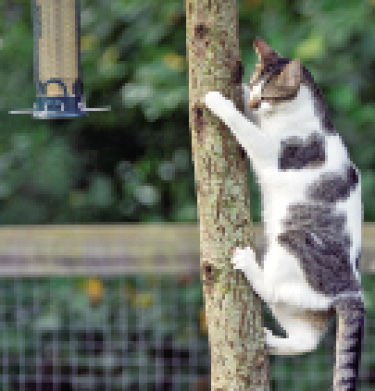Avian influenza is still a factor in our lives, hence the high prices for eggs due to the outbreaks last year. Dogs and cats can contract avian (bird) flu.
Recently, a cat in Wyoming with no clinical signs was diagnosed with avian flu and two cats in Nebraska were found with neurologic signs of the disease. All three cats were outdoor cats and known to hunt. Sick and weakened birds are easy prey for cats.
Cats would need a high level of viral particles circulating in their bodies to be a risk factor for infecting people. It is possible, but not a high risk since they are not a primary host for the virus.
Outdoor cats with severe neurologic signs must be distinguished from rabid cats, which can be done via isolation. Cats with respiratory signs have a higher likelihood of having other respiratory infections such as calicivirus.
You can avoid avian flu by keeping your cat indoors. If she goes outdoors, minimize contact with birds by keeping feeders out of your yard. Don’t have feeders, as they attract birds to your yard. Bells on collars just don’t work.



